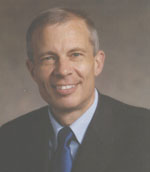By Paul Mills

Recent weeks in Maine and the nation have been among the most eventful if not turbulent we have experienced in some time. The Charleston church shootings, a Supreme Court decision averting the collapse of Obamacare followed the next day by one nationalizing the legality of Same Sex marriage have been among them. The ever distinctive persona of Maine’s governor and his struggles with legislative leaders have also drawn the attention of the nation.
The explosive exhibition of fireworks anywhere in Maine will thus some seem subdued and muffled by comparison to the drama playing out in various arenas of our nation and state.
This Fourth of July weekend, however, is a reminder that no matter how volatile the events of our own time, they are significantly more manageable and predictable than the labor pains that accompanied the nation’s official birth at Philadelphia just 239 years ago at this time.
Indeed, its birth had a protracted gestation that occasioned criticism by some of its more prominent signers. Among them, future president John Adams. Writing to his wife, Abigail, Adams observed that had the Declaration been issued sooner “We should have mastered Quebec and been in possession of Canada.”
This was of course a reference to Benedict Arnold’s unsuccessful foray through Maine the previous winter on his way to his attempted seizure of Quebec. Nearly half of Arnold’s forces of 1,100 including many from Maine didn’t make it through the difficult terrain and unforgiving weather. The few that remained were not fit to pull off the New Year’s Eve invasion of the city.
Adams’ view was that Arnold would have been able to conquer the crown jewel of eastern Canada had the expedition been blessed with the support of a Congress on a more resolute revolutionary basis. A successful outcome would, of course, have spelled a dramatically different future for our own state today.
For one thing, Maine might not have been the “end of the line” domain it is today. Instead, we might have been cushioned by the politically and economically powerful Quebec and New Brunswick. We in effect might be a transitional state between them much as Connecticut and Rhode Island are to New York and Massachusetts. On the other hand, as columnist Jim Brunelle speculated some dozen years ago, the “two Maines” might have been absorbed into Quebec and New Brunswick completely, north and south or “maybe east and west,” as Brunelle described it.
Would, under such circumstances, Republican Paul LePage be governor? His comfort with Canada – where he spent the first years of his business career – and his fluency in French – his primary lexicon of communication in the first two decades of his life – would personally serve him well, however, even if there were no Maine of which he would be governor.
Would Democrat Mark Eves be speaker of the house? Even if there were not a Maine speaker’s podium from which to preside he might be politically more at home in a state that included parts of Canada. After all, the ideological political needle of Quebec and New Brunswick is more to the left than their southern Downeast neighbors.
(LePage and Eves’ early predecessors, however, stood in awe of the Fourth of July even more than Christmas and New Year’s Day. For Independence Day was one of the earliest holidays in Maine law. In 1836, the only two days on which citizens were bestowed with immunity from civil arrest were the Fourth of July and Election Day. Christmas didn’t become a holiday until 1858, New Year’s Day not until 1863.)
Even if there were neither a Blaine House nor a Speaker’s rostrum in Augusta it’s doubtful that we in any event would have remained a part of Massachusetts.
It’s a Massachusetts native and one of its most prominent citizens, however, who was one of the foremost historians in America of the last century. His name: Samuel Eliot Morison, author of over 40 books including one about the place in Maine to which he frequently retreated, Mount Desert Island.
The declaration’s words are “more explosive than the atom” and “more revolutionary than anything written by Robespierre, Marx, or Lenin,” Morison opined as he referred to three persons rarely cited when one speaks of the Declaration of Independence.
They are, according to Morison, a “continual challenge to ourselves as well as an inspiration to the oppressed of all the world.”
It’s a set of lyrics that might find both Governor LePage and Speaker Eves singing in the same key.
Paul H. Mills, is a Farmington attorney well known for his analyses and historical understanding of public affairs in Maine. He can be reached by e-mail: pmills@myfairpoint.net.





Thanks, Paul. I always enjoy your historical perspective.